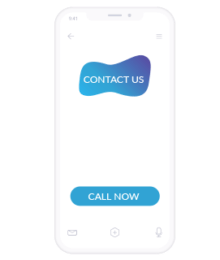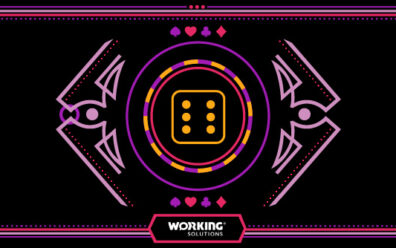Contact Center Operations Contact Center Scalability Customer Experience Inbound Contact Center Retail and Consumer Services Sales/Growth Virtual Workforce Management6-minute read
Does Your Business Need a Modern Contact Center? Here’s How to Find Out
For the vast majority of companies, of all sizes and across many industries, call centers have become an important part of a successful business plan, essential for offering the best possible customer experience (CX) to the people with whom you do business. It’s a factor that’s been shown to have a major effect on a company’s staying power and long-term success.

Forget about yesterday’s conventional wisdom: Call centers are no longer just the domain of shady telemarketing firms or huge, multinational retailers. Today’s call centers are versatile and scalable, used by every type of business—from eCommerce startups to huge healthcare corporations, and across all industries, including finance, construction, travel, utilities, home services and all points in between.
The reason for the dramatic rise in their use of call centers isn’t hard to figure out when you consider all the different ways that customers interact with businesses. Sure, they still pick up the phone and call a representative from time to time. They’re just as likely to send an email or a Facebook message—or visit the company’s website, or its mobile app or its Instagram feed. You get the idea.

Call centers has evolved into today’s modern contact center, interacting with customers using whatever channel customers prefer.
Source: www.shutterstock.com.
To meet this shift in customer communications, yesterday’s call center has evolved into today’s modern contact center, equipped to interact with customers on whatever channel they prefer. This is a sophisticated, multifaceted hub where businesses communicate with customers, clients and anyone else they need to in a variety of ways, across an ever-expanding span of technologies.
Yet providing access across all of these channels is no easy task—and doing so in a way that meets the highest standards of professionalism in customer care, sales and marketing is even tougher. For businesses on the grow, it’s no longer good enough to simply respond to customer calls, emails or instant messages in a casual way.
That’s why so many businesses today rely on the services of a formal contact center to make sure they get the best possible results from each interaction. Whether they build their own centers or hire a third party to provide it, these businesses are discovering a basic investment in ensuring great customer service across multiple channels can help them drive growth and outpace the competition.
Does Your Business Need a Modern Contact Center? 8 Questions to Find Out
But maybe this all seems like more than you really need. Maybe your company hasn’t yet branched out into a multichannel approach; perhaps you don’t even feel the need to do so. Maybe you’re still content fielding customer inquiries on a 9-to-5 basis, relying on an administrative assistant to answer calls and depending on your on-site sales team to manage your outbound calling strategy.

Is your business ready for growth? The benefits of partnering with on-demand contact center is having a business partner that will coordinate efforts to help your company grow.
Source: www.shutterstock.com.
There’s nothing inherently wrong with this approach; it is, after all, the model with which most businesses begin. But is it really geared to help you grow? If you’re reading this article, you’ve probably—at a minimum—considered the benefits of coordinating your communication efforts into a larger, comprehensive strategy.
The question, then, is this: How can you tell whether your business really needs a modern contact center, whether that means expanding the responsibilities of your own onsite team or partnering with a third-party service provider? With the following questions, you’ll get a pretty good idea of the answer.
1. Are you currently able to respond to calls and messages in a speedy and efficient way? Are you providing answers to your customers’ questions in ways that best ensures satisfaction and loyalty? If you’re consistently leaving people on hold for more than a few minutes, you should be aware that you may be fostering a sense of dissatisfaction with your brand, which could hurt repeat business.
Learn More: How to Achieve Consistency in Customer Service
2. Are you aware of the length of your average hold time? Do you even know whether you’re responding quickly enough to calls, or are you simply leaving it to chance and assumption? Are you aware of how to measure this data? If the answer is no, it’s time to implement basic contact center metrics to give you a clear idea of just how long it’s taking to satisfy customer inquiries.

Implementing a basic contact center metric will provide perspective on how long it is taking to satisfy customers.
Source: www.shutterstock.com.
Learn More: 4 Key Customer Service Metrics You Should Be Measuring
3. Is your customer service available 24/7? Do your current efforts to field customer calls and inquiries ensure 24/7 availability? Are you giving your customers the ability to reach you after hours, or on weekends? How about holidays? And if the answer to any of these questions is no, are you comfortable losing those customers to competitors who have implemented around-the-clock service?
Learn More: How to Retain Customers and Keep Your Churn Rate Low
4. Do your current customer service efforts reflect industry standards for quality of care and professionalism? More than ever before, today’s customer expects a top-notch customer service experience in terms of professionalism, speed and efficiency. A CX report from RightNow Technologies also shows 73% of consumers expect friendliness, too. Are you meeting these standards?

Today’s customer expects a top-notch customer service experience in terms of professionalism, speed and efficiency.
Source: www.shutterstock.com.
Learn More: How Agent Friendliness Became a Key Driver of Customer Satisfaction
5. Are you leveraging the latest sales and marketing techniques? When you field incoming calls, and, even more importantly, when you make outgoing sales calls, are you making use of every aspect of modern sales and marketing knowhow to produce the best possible outcomes from every interaction? If not, you’re missing important—and relatively easy—opportunities to drive further growth.
Learn More: How to Increase Close Rates by 30% and Extend Add-on Sales by 20%
6. Are you offering customers automated service? Companies that focus only on live-agent phone calls can expect to be left behind by the competition: According to the American Express 2017 Customer Service Barometer, more than 60% of consumers would rather use a digital, self-service tool than make a phone call. Features like instant messaging or a website FAQ page aren’t frivolous—they’re a necessity.
“More than 60% of consumers would rather use a digital, self-service tool than make a phone call.” Share on X
Learn More: The Importance of Customer Self-service Options
7. Are you doing everything you can to engage mobile customers? According to the Pew Research Center, 77% of Americans owned a smartphone in 2018, compared to just 35% in 2011. Is your website optimized for mobile interaction, to make sure that shoppers who reach you from their phones can make easy, satisfying transactions? If not, you could be missing out on crucial conversions.
“According to the Pew Research Center, 77% of Americans owned a smartphone in 2018, compared to just 35% in 2011.” Share on X
Learn More: 6 Call Center Strategies for Engaging Mobile Customers
8. Do you have a separate strategy for customer complaint management? Especially when managed in-house by multitasking employees, customer care efforts often shun complaint management. And that’s a mistake: Prioritizing customer complaints can lead to greater customer retention, and, since it costs more to acquire new customers than retain existing ones, the revenue boost can be significant.
Learn More: How to Implement an Effective Customer Complaint Resolution Process
Does Your Business Need a Call Center? We Can Help!
If you’re not satisfied with your answers to these questions, chances are good that your business needs a modern contact center—one run by professionals with the experience to get results.
With more than 20 years of success helping businesses of all sizes, and across all industries, achieve the best possible customer experience, Working Solutions is well-positioned to help you implement the contact center expertise that best suits your needs.

Interested in learning more? Contact us here to schedule your complimentary consultation with a Working Solutions customer service expert.
Let's connect.
This Might Interest You...
This website uses cookies to personalize and improve your experience. Continue browsing our site if you agree to our Cookie Policy or feel free to Manage Cookies yourself.


